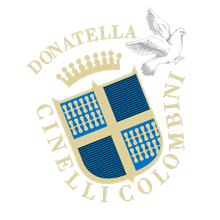
Via Francigena a route through the lands of Siena and maybe even Casato Prime Donne…
[gplusone]
No-one knows the exact location of the historic thoroughfares and roads which ran between North Europe, Rome and Jerusalem, although it is very likely that the Il Casato Prime Donne was situated right on one of the main paths
The Via Francigena started to be widely used during the sixth century when the wars between the Byzantines and the Lombards made it very difficult to use the Via Cassia and the Via Emilia and therefore it was one of the main paths which linked Siena, Florence, Bologna and Piacenza. The Francigena crossed the Apennines quite far North at Lucca and Parma. It was not really a well constructed road, it did not have paved paths and bridges such as those created for the Roman consuls, but rather it was more like a set of simple paths which all meandered in the same direction and which created almost a ‘collection of roads’.
Il Casato Prime Donne is situated on the line which stretches between the two most important places in the Montalcino district. From the North at Badia Ardenga, a convent which has a beautiful church with a crypt, and where according to legend, King Henry VII was poisoned and died in 1313, down to the South, at the Abbazia di Sant’ Antimo, a splendid church built in onyx and framed by stunning Brunello vineyards.
In the Middle Ages a growing flow of pilgrims, merchants and soldiers walked along the Via Francigena. These travellers brought with them ideas, cultures, trade and human traits which helped to create a common civilization across the different countries of Europe. Because of this, the Via Francigena was chosen as one of the 22 most important European routes by the Council of Europe Project.
Siena was one of the important milestones along the via Francigena, and precisely because of this road, which skirted the outskirts of Florence, Siena prospered and developed a huge infrastructure where it created wonderful buildings such as the Hospital of Santa Maria della Scala, which is now a museum. A citadel for the pilgrims, which was so extensive as to have a covered road inside it and which has become nowadays, here in the future, a museum which is even larger than the Louvre.
In recent years, in front of the Santa Maria della Scala, together with Councillor Alessandro Mugnaioli, we welcomed a group of adult Scouts who had made their own personal pilgrimage along the Via Francigena, through Tuscany which ended at Sant’ Antimo.
They are prime examples of modern pilgrims. They are people who are looking for a new relationship with themselves, with God and with other fellow human beings.
Donatella Cinelli Colombini
Events between Crete Senesi and Val D’orcia










